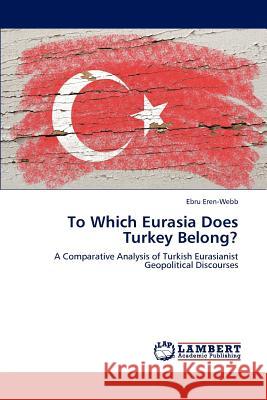To Which Eurasia Does Turkey Belong? » książka
To Which Eurasia Does Turkey Belong?
ISBN-13: 9783659185342 / Angielski / Miękka / 2012 / 156 str.
This study argues that there are two prominent Eurasianist discourses in Turkey, the Kemalist and the Ottomanist. These traditions draw on three geopolitical traditions: the nationalist, the socialist, and the Islamist. The contents of three representative journals are analyzed in order to seek answers to three main questions. First, what distinguishes these three types of geopolitical traditions? Second, did the nationalist and socialist views in recent years converge on each other, thereby forming the Ulusalc view, while the Islamists became the opposing pole? Third, if yes, why did this realignment take place? This research results show that the geopolitical visions of these three groups and the way they imagine the past help to explain their respective perspectives of Eurasia and how they place Turkey in these perspectives. The nationalist and socialist visions of Eurasianism did indeed converge on each other, because the Post- Cold War Islamist circles allied with the liberal groups and developed an alternative counter-memory to the Kemalist historiograpy. The nationalists and socialists, on the other hand, remained faithful to the Kemalist narrative."
This study argues that there are two prominent Eurasianist discourses in Turkey, the Kemalist and the Ottomanist. These traditions draw on three geopolitical traditions: the nationalist, the socialist, and the Islamist. The contents of three representative journals are analyzed in order to seek answers to three main questions. First, what distinguishes these three types of geopolitical traditions? Second, did the nationalist and socialist views in recent years converge on each other, thereby forming the Ulusalcı view, while the Islamists became the opposing pole? Third, if yes, why did this realignment take place? This research results show that the geopolitical visions of these three groups and the way they imagine the past help to explain their respective perspectives of Eurasia and how they place Turkey in these perspectives. The nationalist and socialist visions of Eurasianism did indeed converge on each other, because the Post- Cold War Islamist circles allied with the liberal groups and developed an alternative counter-memory to the Kemalist historiograpy. The nationalists and socialists, on the other hand, remained faithful to the Kemalist narrative.











